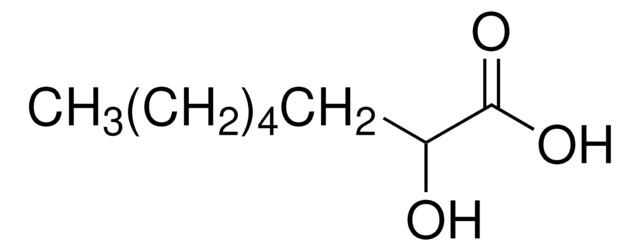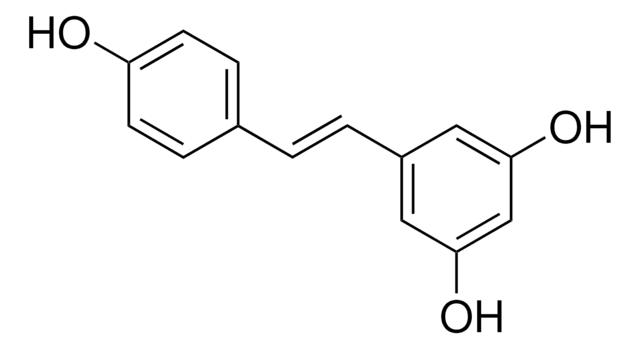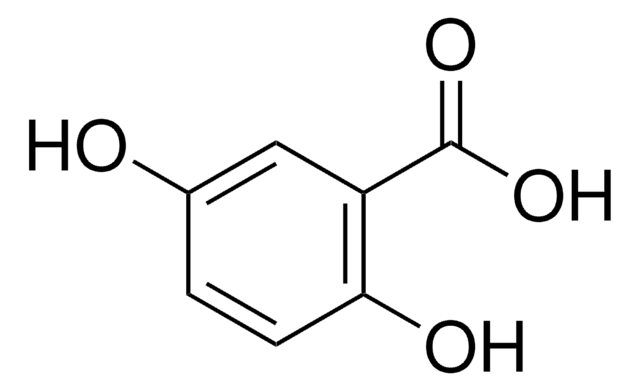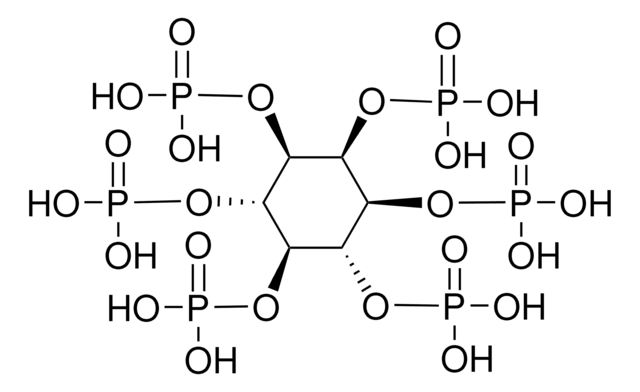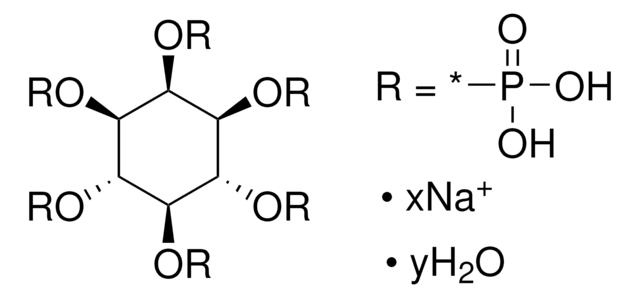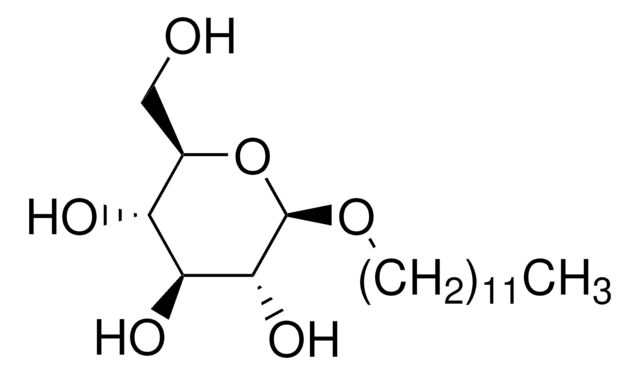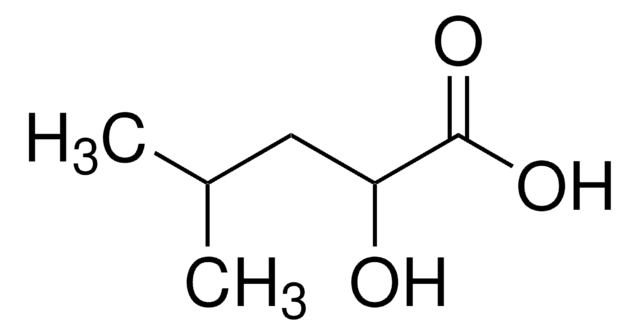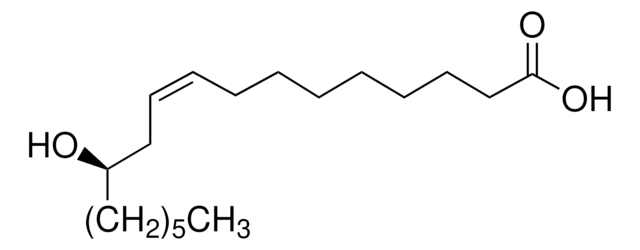H6521
2-Hydroxydodecanoic acid
≥98% (capillary GC)
Synonyme(s) :
α-Hydroxylauric acid, 2-Hydroxylauric acid, DL-α-Hydroxylauric acid
About This Item
Produits recommandés
Essai
≥98% (capillary GC)
Type de lipide
saturated FAs
Température de stockage
2-8°C
Chaîne SMILES
CCCCCCCCCCC(O)C(O)=O
InChI
1S/C12H24O3/c1-2-3-4-5-6-7-8-9-10-11(13)12(14)15/h11,13H,2-10H2,1H3,(H,14,15)
Clé InChI
YDZIJQXINJLRLL-UHFFFAOYSA-N
Vous recherchez des produits similaires ? Visite Guide de comparaison des produits
Application
Code de la classe de stockage
11 - Combustible Solids
Classe de danger pour l'eau (WGK)
WGK 3
Point d'éclair (°F)
Not applicable
Point d'éclair (°C)
Not applicable
Équipement de protection individuelle
Eyeshields, Gloves, type N95 (US)
Faites votre choix parmi les versions les plus récentes :
Déjà en possession de ce produit ?
Retrouvez la documentation relative aux produits que vous avez récemment achetés dans la Bibliothèque de documents.
Les clients ont également consulté
Notre équipe de scientifiques dispose d'une expérience dans tous les secteurs de la recherche, notamment en sciences de la vie, science des matériaux, synthèse chimique, chromatographie, analyse et dans de nombreux autres domaines..
Contacter notre Service technique